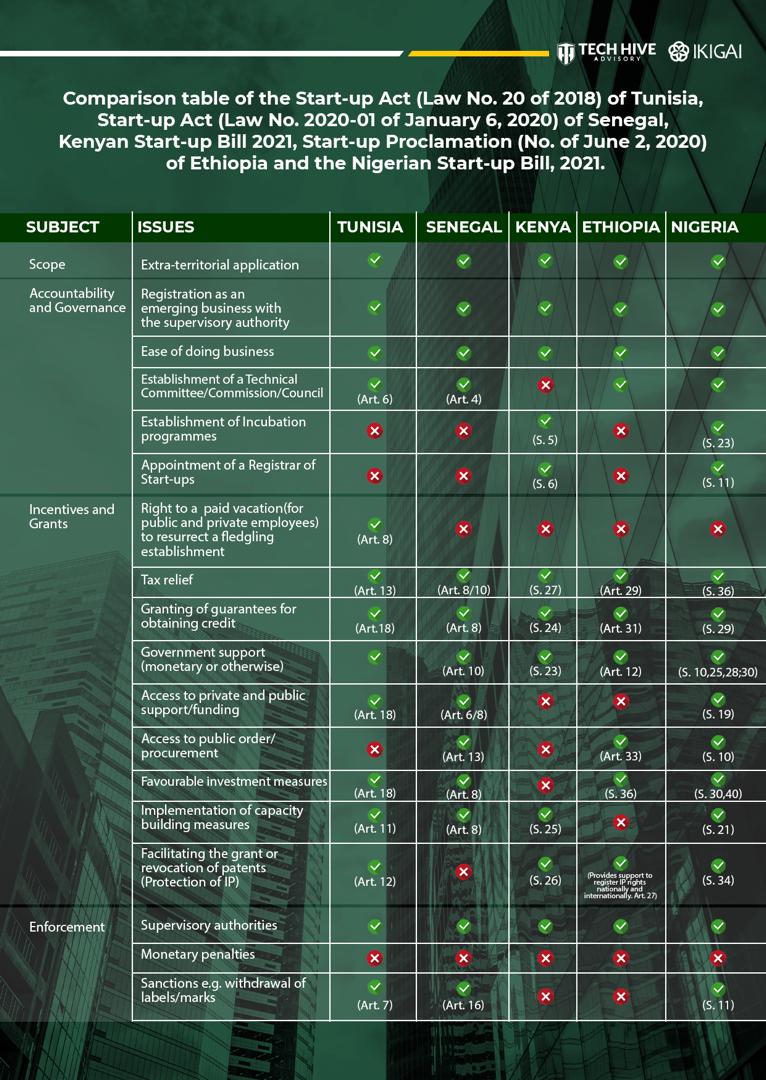The Nigeria Startup Bill is now a law
Nigeria's President Muhammadu Buhari has assented to the Nigeria Startup Bill to drive the growth of the country's tech ecosystem.

Over a year after its first draft was produced, President Muhammadu Buhari today (October 19, 2022) signed the Nigeria Startup Bill (NSB) into law to govern the multi-billion dollar tech ecosystem in the country.
"His Excellency, @MBuhari has just assented to Nigeria Startup Bill," Isa Pantami, Nigeria's Minister of Comms and Digital Economy, tweeted. The Bill which was approved by the Federal Executive Council (FEC) in December 2021 and passed by the National Assembly in July 2022 is a collaborative effort between the Presidency, the Federal Ministry of Communications and Digital Economy, the Nigerian Export and Promotion Council and other government bodies.
The initiative for the NSB was launched in May 2021, by the Presidency, in collaboration with 30 tech leaders, including Ventures Platform founder Kola Aina and Future Africa founder Iyin Aboyeji, officials of the National Information Technology Development Agency (NITDA), and the Minister of Digital Economy Isa Pantami.
With the Act, a Council for Digital Innovation and Entrepreneurship will be created, the council will be responsible for the formulation and provision of general policy guidelines for the realization of the objectives of the Bill and also give overall direction for the harmonisation of laws and regulations that affect a startup.
BREAKING!
— Prof. Isa Ali Pantami (@ProfIsaPantami) October 19, 2022
His Excellency, @MBuhari has just assented to Nigeria Start-up Bill. It has now become Nigeria Start-Up Act, 2022. It was an Executive Bill, initiated by both Office of the Chief of Staff & the Office of the Minister of Comms & Digital Economy. Congratulations to all!
"Regulatory uncertainty disincentivizes investment, which is critical for the growth of our innovation space and the country broadly. So if this Bill is able to reduce that uncertainty and create the kind of regulatory clarity that attracts capital, it would be a major win for the ecosystem," Tomiwa Aladekomo, a member of the Presidential Advisory Strategic Group Members on the NBS told Benjamindada.com last year.
Related Article: How the Nigeria Startup Act will drive growth in the tech ecosystem
The proposed Council will be led by the President of Nigeria, the Vice President, Ministers of Digital Economy; Finance; Trade and Investment; Science and Technology, the Governor of the Central Bank of Nigeria, three representatives of the Startup Consultative Forum, two representatives of the Nigeria Computer Society and the Director General of National Information Technology Development Agency–NITDA.
What is a Nigerian startup, according to NSB?
According to the Act, a (Nigerian) startup is an innovation or technology-driven company that meets the following criteria:
- is registered as a company under the Companies and Allied Matters Act and has been in existence for a period of not more than ten (10) years from the date of its incorporation or registration;
- has as its objective, the innovation, development, production or improvement and commercialisation of an innovative product or process;
- has its headquarters in Nigeria;
- has at least 51% of its shares held by one or more Nigerians, provided that where the level of foreign participation exceeds this prescribed threshold, the entity may still be entitled to enjoy the benefits provided under the Act if the ultimate beneficial owners of its foreign shareholders are Nigerian citizens;
- has as its innovative product or process, new technology or a product/process which is technology-enabled;
- has at least 15% of its expenses attributed to research and development activities; and has less than 100 direct employees, excluding casual workers, consultants and personnel engaged through Business Process Outsourcing.
The Act has also been harmonised with existing relevant laws, including: the Nigeria Data Protection Regulation 2019, Nigeria Export Processing Zones Act (NEPZA) and the Industrial Training Fund (Amendment) Act 2011.
In a 2022 report by TechHive and Ikigai, the Nigeria Startup Act ranked best among the other four African startup legislations—Senegal, Tunisia, Ethiopia and Kenya—with relation to their scope, label and governance, incentives and enforcement. Currently, Kaduna and Lagos states have indicated interest to domesticate the Startup Act.

Editor's Note: This is a developing story, it will be updated with more details.






